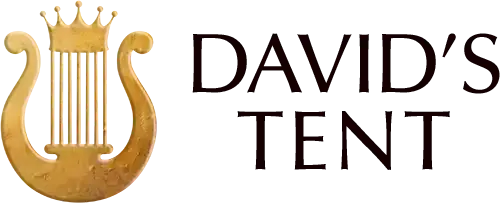Prophets and the Exodus
Passover – that earth-shattering prophetic event 3,500 years ago – points to upcoming world revival through Israel
Jewish people across the entire planet will be celebrating Passover (in Hebrew, Pesach) on Saturday evening. The God of Israel gave our people specific instructions to commemorate the holiday on the exact time of day when the twelve tribes of Israel began their Exodus from the Land of Egypt. The nation of Israel still sanctifies the eve of that Day with a Passover seder (commemorative meal).
- “Observe the month of Aviv and celebrate the Pesach of YHVH your God, because in the month of Aviv He brought you out of Egypt by night, so that all the days of your life you may remember the time of your departure from Egypt … There you must sacrifice the Pesach in the evening, when the sun goes down, on the anniversary of your departure from Egypt” (Deuteronomy 16:1,3).
Another fascinating aspect of the Passover concerns the tying-in of the prophetic to this holiday. The waters bubbling up from this prophetic well have world-shaking significance for both the Jewish people and the Gentiles.
The daughter of a lion is also a lion
The first time the word ‘prophet’ is used in the Bible is with reference to Abraham. Abimelech the ‘sheikh’ of Gerar was visited in a night dream by the God of Abraham, who informed the pagan king that he was about to be put to death by divine judgment for having kidnapped Sarah. Abimelech protested that he had only kidnapped Sarah, but had not yet had relations with her. God responded to his plea, saying:
- “I also kept you from sinning against Me; therefore I did not let you touch her. Now then, return the man’s wife, for he is a prophet, and he will pray for you and you will live. But if you do not return her, know that you will certainly die, you and all who are yours!” (Genesis 20:6-7)
YHVH calls Abraham a prophet, and explains that Terah’s son (Genesis 11:26) has the ability to bring healing to people for whom he prays. The progeny of a lion are also lions, and the Jewish nation – the descendants of the prophet Abraham – are also prophets. YHVH declares in Psalm 105:15 that He rebuked the kings of the Middle East, warning them to be aware of His protection on the seed of Abraham and the children of Jacob:
- “When they were only a few people in number – very few, and strangers in it – they wandered from nation to nation, from one kingdom to another people. He allowed no one to oppress them, and He rebuked kings for their sakes, saying, Do not touch My anointed ones, and do not harm My prophets!”
Moses is aware of God’s heart and strategic calling on Israel, as his declaration reveals: “If only all YHVH’s people were prophets, that YHVH would put His Spirit upon them!” (Numbers 11:29). Paul also was in sync with this divine perspective, according to his statement in 1 Corinthians 14:5: “Now I wish that you all spoke in tongues, but rather that you would prophesy. And greater is the one who prophesies than the one who speaks in tongues, unless he interprets so that the congregation (ἐκκλησία/ekklesia in Greek) may receive edification.”
Miriam the sister of Moses is described as a prophetess in Exodus 15:20, while Aaron the brother of Moses is described by YHVH as functioning as a prophet to Moses (see Exodus 7:1) – one who receives words of divine origin and communicates them to the whole nation: “Then YHVH said to Moses, ‘See, I have made you as God to Pharaoh, and your brother Aaron shall be your prophet.’”
Moses, the prophet par excellence
Among a nation of prophets, and born into a prophetic family, Moses nevertheless stands out as the first among equals. The God of Jacob declared to the whole nation of Israel:
- “Now hear My words: If there is a prophet among you, I, YHVH, will make Myself known to him in a vision. I will speak with him in a dream. It is not this way for My servant Moses: He is faithful in all My household! With him I speak mouth to mouth – that is, openly, and not using mysterious language, and he beholds the form of YHVH” (Numbers 12:6-8)
The final words of the Scroll of Deuteronomy emphasize this point:
- “Since that time, no prophet has risen in Israel like Moses, who YHVH knew face to face, for all the signs and wonders which YHVH sent him to perform in the land of Egypt against Pharaoh, all his servants, and all his land – and for all the mighty power and all the great terror which Moses performed in the sight of all Israel” (Deuteronomy 34:10-12)
The anonymous prophet
Whereas Moses was the most famous of the prophets, the Book of Judges tells us about an anonymous prophet whose calling was to remind the nation of Israel of their disobedience to Moses’ covenantal commands. He was faithful to his calling, as Moses was faithful to his vocation:
- Now it came about, when the sons of Israel cried out to YHVH on account of Midian, that YHVH sent a prophet to the sons of Israel, and he said to them, “This is what YHVH, the God of Israel says: It was I who brought you up from Egypt, and brought you out of the house of slavery. And I rescued you from the hands of the Egyptians, and from the hands of all your oppressors, and I drove them out from you and gave you their land, and I said to you, I am YHVH your God; you shall not fear the gods of the Amorites in whose land you live. But you have not obeyed Me” (Judges 6:7-10)
The prophetic calling of Israel
The God of Israel laid out a prophetic calling in Numbers 6:22-27, which is known today as ‘the Aaronic Benediction’:
Then YHVH spoke to Moses, saying, “Speak to Aaron and to his sons, saying, ‘In this way you shall bless the sons of Israel. You are to say to them:
‘YHVH bless you and keep you;
YHVH cause His face to shine on you and be gracious to you;
YHVH lift up the light of His countenance upon you and give you peace.’
So they shall invoke My name on the sons of Israel, and then I will bless them.”
Aaron and his descendants (the Jewish high-priesthood) were to ask YHVH three times to shine the light of His face upon the entire Jewish people. This radiating glory had been seen on Moses’ face every time he met face-to-face with YHVH (see Exodus 34:29-35). The Aaronic prayer was asking the God of Israel to shine so strongly upon the entire Jewish people, that all the nations of the world would see His glory and bow in worship before YHVH.
An anonymous writer of one of the Psalms – a music director himself from the family of Aaron – composed a song which was to be accompanied by an orchestra of stringed instruments. Using Aaron’s benediction/prayer, he intercedes before God, asking Him to shine His face on the Jewish people – in order that all the nations (to the ends of the earth) would fear YHVH, come to know YHVH and be saved by Him:
- God be gracious to us and bless us, and cause His face to shine upon us! Selah! That Your way may be known on the earth, Your salvation among all nations. May the peoples praise You, God! May all the peoples praise You! May the nations be glad and sing for joy! For You will judge the peoples with fairness and guide the nations on the earth. Selah! May the peoples praise You, O God! May all the peoples praise You! The earth has yielded its produce. God, our God, blesses us. God blesses us, so that all the ends of the earth may fear Him (Psalm 67)
Israel’s shining face brings about the revival of the nations
Isaiah was granted prophetic insight into how the God of Israel would bring this all to pass. He saw the day when YHVH’s light would shine upon the Jewish people – at a time when the nations would be dwelling in gross darkness. World revival would come when God’s light would reflect off Jewish faces and transform the darkness of this planet’s peoples:
- “Arise, shine; for your light has come, and the glory of YHVH has risen upon you. For behold, darkness will cover the earth and deep darkness the peoples. But YHVH will rise upon you and His glory will appear upon you. Nations will come to your light, and kings to the brightness of your rising!” (Isaiah 60:1-3)
The Apostle Paul mirrors this Last Days vision, describing Israel’s spiritual fulfillment as bringing “much greater riches to the Gentiles” and the Jewish people’s acceptance of Messiah Yeshua as bringing “life from the dead” to the entire earth (see Romans 11:11-15). From Abraham the prophet to Moses the ‘super-prophet,’ to the entire Jewish people shining God’s reflected glory onto the faces of all nations – the Passover story and the Exodus from Egypt are bound up in YHVH’s prophetic calling on the sons and daughters of Jacob.
As Paul emphasizes in his conclusion of Romans chapter 11, “in relation to God’s choosing, [the Jewish people] are beloved on account of the Patriarchs. For the gifts and calling of God [on Israel] are irrevocable!” (Romans 11:28-29). Happy prophetic Passover!
Your prayers and support hold up our arms and are the very practical enablement of God to us in the work He has called us to do.
In Messiah Yeshua,
Avner Boskey
Donations can be sent to:
FINAL FRONTIER MINISTRIES
BOX 121971 NASHVILLE TN 37212-1971 USA
Donations can also be made on-line (by PayPal or credit card) through: https://davidstent.org/

